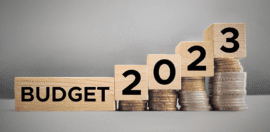Fight to protect charitable advocacy continues

10 February 2020 at 5:10 pm
“Without limits on political donations and election spending, politicians will respond to those with the biggest bank balance, instead of those with the best ideas,” Human Rights Law Council says.
A Queensland government bill limiting political donations and election spending needs amending to avoid locking out charities and community groups from political discussion, a state Parliamentary Committee has found.
The government-led committee said in a report published on Friday that the bill should be passed, but amendments need to be considered to preserve the role NFP organisations play in Australian democracy.
The proposed laws would limit third parties, such as charities, from receiving $4,000 per election term in donations – less than $20 a week – for election-related advocacy, which legal experts say would stifle charitable advocacy in Queensland.
In contrast, corporations would not face any restrictions on the amount used on campaigning, being able to spend up to $1 million each on election advertising.
Read more: Charitable advocacy comes under threat in Queensland
Alice Drury, senior lawyer at the Human Rights Law Centre, said it was positive the committee looked to be taking the concerns of charities and community groups seriously, but more detail was needed.
“The devil is in the detail,” Drury said.
“We encourage the government to work with legal experts and civil society groups to ensure their amendments will be adequate to protect civil society advocacy and avoid [a] constitutional challenge.”
She said it was vital the amendments were made to protect democracy.
“Without limits on political donations and election spending, politicians will respond to those with the biggest bank balance, instead of those with the best ideas,” she said.
“Australians are fed up with the status quo. We need a level playing field. Election campaigns should be a time when people with important things to say can be heard, not just those with enough cash to buy a national platform.”
The proposed laws are expected to be voted on in state Parliament next week.







